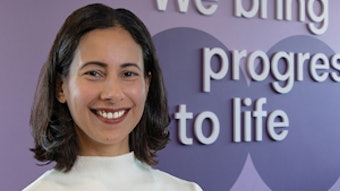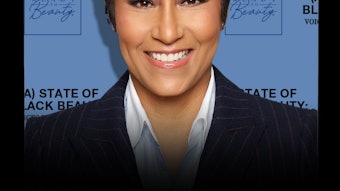- For your brand’s website, let the content dictate the needed technology—and not the other way around.
- In creating or revamping a website, companies have the opportunity to evaluate what is really important to their business and their customers and then can figure out the best way to serve both.
- Brands should establish goals for the new website, as well as review existing analytics, in order to use brand and business knowledge to inform the development of a better site.
Without a doubt, new technology is essential in creating a strong website. For beauty brands, however, it is the engaging content and user experience that are far more valuable. The best process for website development begins with defining business objectives, user desires and market opportunities. The resulting content should then inform the selection of a technology platform—not the other way around.
Often, companies and brands seeking a new website begin their search by looking for a technology platform, a site template or a technology partner. And it is only natural for teams to become enamored with the many bells and whistles available for customizing, automating and uploading content. This is an exciting experience, and there are many robust and highly affordable options available. During this process, a brand may choose a platform or technology partner simply because it “feels right.”
The problem is, once the platform is selected, it is highly unlikely the team will take the time to explore the communication opportunity ahead with the same fresh perspective they had going into the process. Generally, the momentum for the website then becomes, “What content can we create to fill this predetermined area on our selected template?” instead of “What are the needs, key drivers and motivators of my audience?” Focusing on the technology deters from the focus on the consumer.
While speed and performance are important to users online, they may not ever notice what technology is powering a site unless a feature is non-functional or broken. They will, however, notice instantly if the content is not clearly presented, well organized, easy to understand, exciting or compelling. With this in mind, MSLK is committed to the philosophy that content should be considered first. Only then should a technology platform be chosen that helps you and your team deliver that content in the best manner possible.
The Process of Content Discovery
Instead of beginning a search for a technology platform, MSLK suggests a discovery process to unearth the business objectives, user desires, and market opportunities of the company and brand to its clients. Often, an established brand feels it does not need to embark on such a discovery, thinking this information is already known. However, established brands are the ones that will benefit the most from such an exploration. Established brands have a track record, data and history that can be analyzed to break through to new levels of success. Start-ups and emerging brands also will benefit from the focus this process will produce, but they will not have the advantage of real market feedback.
And although what information is analyzed and debated during this process may differ slightly from client to client, the method usually touches on these key areas: business goals, existing analytics, target user profiles and competitive analysis.
Establish Shared Goals
Many companies believe they have a firm handle on their business goals for their website. Their goal is a new website. Or perhaps the goal is to upgrade to the latest technology or to be more mobile-friendly. MSLK suggests companies look deeper and analyze their broad, overall intentions.
Every member of the core stakeholder team has a unique perspective about the goals, needs and opportunity for communication on the site. For example, the marketing department might be keen on growing the fanbase, while the sales team yearns for a better presentation of the product line. These need not be mutually exclusive; perhaps both objectives can be achieved within one site. The solution lies in unearthing all goals from the start and working to bring them into alignment.
When establishing goals, a company or brand also might seek feedback from its key customers and accounts. A fresh perspective on your greatest assets and weaknesses can be extremely helpful during this process.
Review Existing Analytics
If a website currently exists, a quick assessment of the overall site traffic and analytics can prove to be very insightful. Some top items to look for include relevant keywords, referral traffic, mobile statistics, key entry/exit pages and number of pages visited.
Analyzing existing data must be taken with a grain of salt, however. Often the site is woefully outdated or the technology is lacking—otherwise, the team would not be considering a new website. However, the data can give clues for constructing key target user profiles for future development.
Identify a Target User
Does your brand currently have a clear picture of its target customer? If not, now is an excellent time to identify your audience. If profiles have been created, it is important to make sure your business-to-business customer profiles and brick-and-mortar customer profiles are still in alignment with your typical user online.
Often, the goals for the new website center around the information the business would like to communicate. Identifying user profiles allows you to flip the conversation around to ask “What information is my user seeking?,” “What are my users’ needs and key emotional drivers?” and “How might the user process this information?”
Reframing the content and communication objectives for your website to this perspective will be transformative. You can still communicate all the things you want to say, but now you will be able to deliver your message in a more user-centric manner.
Analyze the Market
Your business does not exist in a vacuum, and it is likely your product offering is not the only one available. An assessment of the competitive landscape is a great way to make sure your new website and offering is positioned properly.
There is a time when it is important to be in alignment with your competition, offering the same features, tools, technology and communication as your competitors—and a time to zig when the others are zagging. During the discovery process, identify opportunities to stand out from the competition. MSLK likes to let the brand’s business goals and target users tell us when and where to deviate. Those solutions are as unique for every business as the DNA of the brand itself, and fresh perspective breeds market opportunities.
Pulling It All Together
It does not matter in what order the shared goals, analytics, target users and market analysis are discussed. The exact mix depends on your team’s experience and specific brand needs. What matters most is that before the design and technology stage is initiated, content objectives are defined and agreed upon by a unified team. This alignment will produce insights and perspectives that might not have been previously considered.
The next steps of site map planning, wireframing and creating the website can be explored once you have a sharpened perspective of your business objectives, user desires and market opportunities. Chances are you will discover most content objectives can be achieved with a wide variety of technology platforms. And instead of fitting the content to the technology, you will be finding the best format to present your message. Get the content right, find the technology you need and experience success.
Sheri L. Koetting is the co-founder and chief strategist of MSLK, a marketing and design agency based in New York. MSLK specializes in helping beauty brands find their voice in today’s crowded marketplace through 360° brand positioning—from overall brand strategy to brand identity, packaging, retail experience, websites and social media campaigns. [email protected]; www.mslk.com










